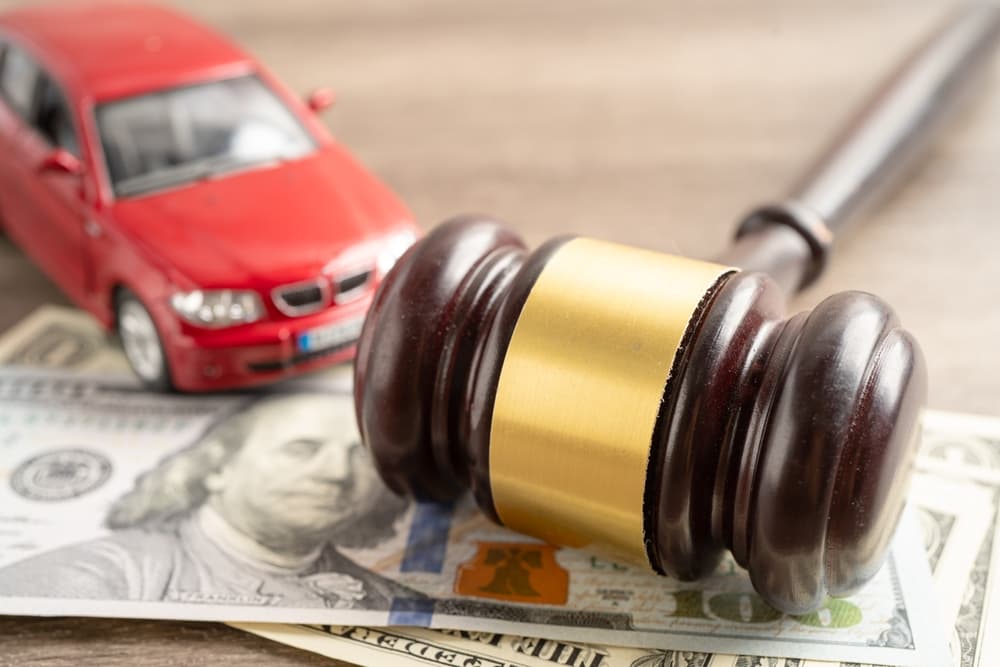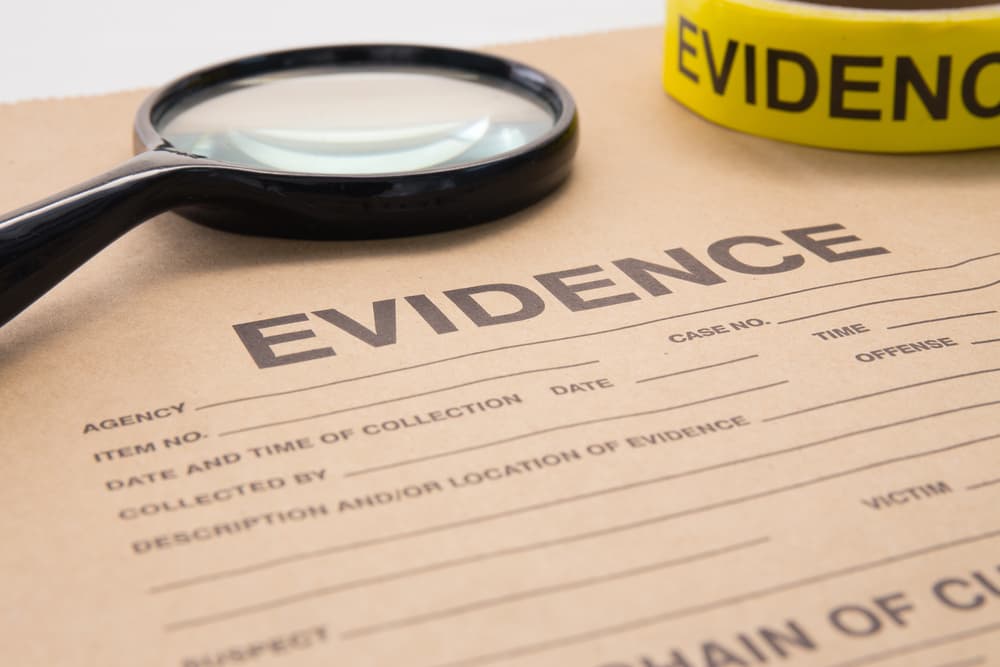When you settle a car accident claim, it often feels like the end of a stressful chapter. You sign some papers, receive compensation, and try to move on. But what happens if, weeks or even months later, you discover a serious injury that wasn't diagnosed earlier? Or what if you realize the settlement doesn't cover the long-term care you now need? Can a car accident claim be reopened after it's been settled?
This is a common question, and the answer depends on several factors. While most settlements are legally binding, there are rare situations where a claim might be reconsidered. If you have settled or closed a claim and wonder if it can be reopened, it's in your best interest to contact a well-versed car accident attorney as soon as possible.
What Does It Mean to Settle a Car Accident Claim?
Settling a car accident claim typically means you've agreed to accept a certain amount of money from an insurance company or opposing party in exchange for releasing them from further liability. In most cases, this involves signing a release of liability form that closes the case permanently. The settlement usually covers:

- Medical bills related to the accident
- Property damage
- Lost income due to time off work
- Pain and suffering or emotional distress
Once this agreement is signed, it's intended to be final. The idea is that both sides have agreed to the terms and are now legally bound by them. That's why understanding what you're agreeing to before signing anything is so important.
Understanding the Risks of Settling Too Soon (Expanded)
One of the biggest mistakes accident victims make is rushing into a settlement too quickly after a crash. It's understandable—after all, medical bills may be piling up, your vehicle might be out of commission, and you're probably missing work. Insurance companies know this and often capitalize on your urgency by offering a fast payout. At first glance, it can feel like a lifeline—but in reality, it may be a trap.
These early settlement offers are usually based on incomplete information. They may not take into account your full range of injuries, long-term care needs, or the possibility of complications that develop weeks or months later. You may still be undergoing diagnostic testing, awaiting follow-up treatment, or not yet aware of the true extent of your injuries. Accepting a settlement under these circumstances means you risk locking yourself into compensation that won't begin to cover your future costs.
Once you accept an offer and sign a release of liability, you typically waive your right to seek additional compensation, even if your condition worsens or new injuries are diagnosed. That's why it's so important to wait until you've reached maximum medical improvement (MMI). This is the point at which your condition has stabilized, and doctors can better predict the long-term consequences of your injuries.
In addition to physical health, your financial and emotional recovery should also be considered before settling. Will you require time off work in the future? Are you facing permanent limitations or reduced quality of life? Will you need rehabilitation or assistive devices? Settling too early often means these considerations go unaccounted for—and you're the one left to carry the burden.
Ultimately, patience and proper evaluation are key. Taking time to fully understand your injuries and potential needs will put you in a much stronger position to negotiate a fair settlement that actually meets your long-term well-being.
Common Reasons People Want to Reopen a Car Accident Claim
Many accident victims later realize that their settlement didn't truly cover the damage they suffered. Whether because of a rushed agreement, new developments, or errors in the process, these individuals often wonder if there's any way to reopen their case. While it's not easy—and rarely possible—here are some of the most common reasons people feel the need to revisit a closed claim:
Undiagnosed or Delayed Injuries
Not all injuries reveal themselves immediately. Soft tissue damage, traumatic brain injuries, internal bleeding, nerve damage, and even psychological trauma can take days or weeks to surface. Some people initially feel fine, only to experience pain, mobility issues, or cognitive impairment later. By then, the claim may already be settled. If the release agreement broadly waived liability for "all present and future injuries," reopening the claim becomes much harder, though not always impossible, especially if the injury was truly unforeseeable or the release language was ambiguous.
Discovery of New Evidence
New information can drastically shift the understanding of a case. This might include:

- Dashcam or surveillance footage that wasn't available at the time
- Witnesses who come forward after the fact
- Expert analysis that contradicts earlier assumptions
If such evidence significantly changes the liability picture or the valuation of your claim, it can be grounds to argue that the original settlement was reached under false or incomplete assumptions.
Fraud or Misrepresentation
If the insurance company or opposing party lied, withheld information, or engaged in deceitful practices during the claims process, you may have a legal basis to challenge the settlement. Examples include:
- Misstating the amount of available insurance coverage
- Falsifying accident details
- Concealing evidence that would have helped your case
Fraud can not only reopen a claim—it can also result in penalties for the party that committed it.
Administrative Errors
Sometimes, the issue is more mundane but still serious. A clerical mistake, such as inputting the wrong amount, leaving out covered expenses, or omitting key documentation, can materially affect your compensation. If the error was mutual or occurred on the insurer's side, reopening the settlement to correct it may be possible.
Rushed or Coerced Settlements
Victims sometimes settle claims under duress, whether that pressure comes from an aggressive claims adjuster or financial desperation. Insurance companies might exploit your vulnerability, warning that the offer will "expire soon" or implying that it's the best you'll get. Without proper legal guidance, many people agree to terms they later regret, and some courts recognize that certain coercive tactics may invalidate consent.
Emotional and Psychological Factors
After a traumatic accident, it's not uncommon to feel overwhelmed, disoriented, or eager to put everything behind you. But emotional recovery often lags behind physical healing. Conditions like post-traumatic stress disorder (PTSD), anxiety, or depression may not manifest until later. If these psychological injuries weren't addressed or diagnosed at the time of settlement, you might be left without the resources to seek proper treatment, and with no way to go back. In some cases, if the mental toll was genuinely unknown or dismissed during the original claim, it may support arguments for reopening the case, especially when coupled with poor legal counsel or insufficient medical evaluations.
In all of these scenarios, one thing is clear: people often settle before they fully understand what they're giving up. That's why it's so important to take your time, seek expert opinions, and avoid rushing into any agreement without understanding all your options.
Breach of Good Faith
If the insurer acted in bad faith—delaying your claim, denying coverage without investigation, or making unreasonably low offers—this can serve as leverage for renegotiation or separate legal action. Insurance companies have a legal duty to handle claims fairly, promptly, and transparently. When they fail to meet this obligation, they may be subject to penalties, including the possibility of being sued for bad faith.
Bad faith may take many forms beyond just slow responses or lowball offers. It can also involve tactics like misrepresenting policy terms, failing to disclose relevant benefits, pressuring you into accepting a settlement without proper explanation, or ignoring critical evidence in your favor. These actions don't just disadvantage you financially—they can undermine your ability to make informed decisions about your case.
If a pattern of bad faith conduct can be documented, it may open the door to not only revisiting the original settlement (if it was induced by such conduct) but also to pursuing a separate bad faith insurance claim. These claims can sometimes result in additional compensation, including punitive damages, especially if the insurer's behavior was willfully deceptive or egregiously negligent.
While proving bad faith can be complex, it's a powerful legal tool for policyholders who were treated unfairly. If you suspect your claim was mishandled in this way, it's critical to consult with an attorney who can evaluate the insurer's conduct and determine whether a bad faith claim or a challenge to your settlement is a viable option.
Can You Reopen a Claim if the Injury Gets Worse?
Unfortunately, even if your medical condition deteriorates or new complications develop after settling a claim, most release forms waive your ability to pursue any future damages. These releases are designed to protect the insurer or liable party from ongoing liability and are typically enforced strictly.
However, if the language in the release is vague or fails to mention unknown injuries, a legal professional might identify an opportunity to challenge it.
What to Do If You Think Your Claim Should Be Reopened (Expanded)
If you're considering reopening a car accident claim, timing and preparation are critical. Here are the steps you should take to give your case the best chance of success:
Review the Settlement Agreement

Start by carefully reading your release of liability or settlement contract. Look for any language regarding future claims, unknown injuries, or conditions of finality. In some cases, overly broad or vague language may leave room for legal interpretation. If the agreement is ambiguous or was signed under questionable circumstances (such as under duress or without legal counsel), it might be possible to challenge its enforceability.
Gather Evidence
You'll need compelling documentation to support any request to reopen your claim. This can include updated medical records showing new or worsened injuries, written communications from the insurance company, statements from witnesses, or evidence of bad faith conduct by the insurer. The stronger and more organized your evidence is, the better your chances of success.
Track All New Developments
Continue to keep a journal of your symptoms, treatments, and expenses. Include dates, names of providers, test results, and invoices. This real-time documentation can serve as key proof that your situation has materially changed since the initial settlement.
Act Quickly
Time is not on your side. Most legal actions, including those involving fraud or contract disputes, are governed by statutes of limitations. Waiting too long to challenge a settlement can eliminate your legal rights, even if your case is strong.
Consult a Legal Professional
These cases can be legally complex and highly fact-specific. A skilled car accident attorney can assess the validity of your claim, identify any weaknesses or opportunities, and help you file a formal challenge if appropriate. Many car accident lawyers offer free consultations, so there's no harm in exploring your options before making a decision.
Tips to Avoid Needing to Reopen a Claim in the First Place
While reopening a settled car accident claim is difficult, avoiding that need altogether is much easier. Here's how to protect yourself during the initial settlement process:
Reach Maximum Medical Improvement (MMI)
Do not accept a settlement until your doctor confirms you've reached MMI—meaning your condition is stable and unlikely to change significantly. Settling too early may result in missing out on compensation for long-term complications or ongoing care.
Include Future Costs in the Agreement
A good settlement doesn't just cover today's bills. It should factor in future surgeries, therapy, medications, assistive devices, transportation needs, and even home modifications if required. Don't overlook long-term care needs or the cost of adapting to a permanent disability.
Avoid Signing Blanket Waivers
Some release forms contain overly broad language that waives all future claims, even for unknown injuries. Negotiate to narrow the scope of the waiver or ensure it's clearly limited to known issues. Vague or one-sided waivers can lock you into a deal that doesn't reflect reality.
Don't Settle Under Pressure
Insurance companies may pressure you with time-limited offers or warnings that this is "the best deal you'll get." Resist the urge to settle based on fear or urgency. You're entitled to a full and fair evaluation of your damages.
Consult a Car Accident Lawyer Before Signing
A car accident attorney can help you review any proposed settlement, explain its legal implications, and negotiate for a better outcome. This small step can prevent years of regret and financial hardship.
Take the Next Step—Speak with a Car Accident Lawyer Today
If you're questioning whether your car accident claim was settled too soon, if you're dealing with new or worsening injuries, or if you believe the insurance company acted unfairly, don't wait to get answers. A car accident lawyer can evaluate your situation, explain your rights, and help you explore any legal options that may still be available, even after a settlement.
Handling the challenges of personal injury law and insurance claims is difficult on your own, especially when your health and financial future are on the line. An experienced personal injury attorney can review your settlement agreement, identify any red flags, and guide you through the next steps with clarity and confidence.
Don't assume your case is closed until a professional has looked it over. Contact a trusted car accident lawyer today for a free consultation and find out if reopening your claim—or pursuing other legal remedies—is possible in your situation. The peace of mind is worth it.
